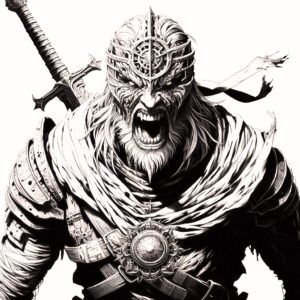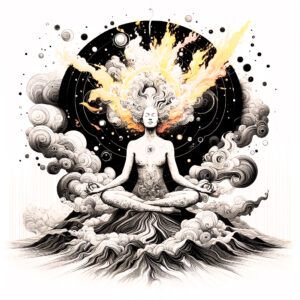
CONCEPT:
Goddess Archetypes
Pronunciation:
\ˈgä-dəs ˈär-ki-ˌtīps\
Definition:
Goddess archetypes are symbolic representations of various feminine qualities, powers, and roles found in mythology, religion, and cultural traditions around the world. They encompass a wide range of figures, from nurturing mother goddesses to fierce warrior goddesses, each embodying different aspects of the feminine principle.
Other Concepts
Deeper Understanding
Goddess archetypes, those timeless symbols of feminine power and wisdom, permeate the mythologies and religious traditions of cultures worldwide. These archetypes, whether nurturing or fierce, embody the multifaceted nature of femininity. From the nurturing embrace of Demeter, the Greek goddess of harvest, to the fierce determination of Kali, the Hindu goddess of destruction and rebirth, goddess archetypes offer a rich tapestry of feminine expression and strength.
Throughout history, goddess archetypes have been revered as embodiments of creation, fertility, wisdom, love, and transformation. They have served as powerful figures in ancient rituals, often linked to natural phenomena like the moon, earth, and water. The ancient Egyptians, for instance, worshipped Isis as a mother goddess and a symbol of fertility and magic, while the Celts revered Brigid as the goddess of poetry, healing, and smithcraft.
In contemporary times, these archetypes have been revisited through the lenses of Jungian psychology, feminist spirituality, and mythology studies. Carl Jung’s theory of archetypes highlights the presence of universal symbols in the collective unconscious, which manifest in myths and dreams. In this context, goddess archetypes represent fundamental aspects of the feminine psyche. Jean Shinoda Bolen’s influential work, Goddesses in Everywoman: A New Psychology of Women, explores how these archetypal figures can inform and inspire personal growth and empowerment in modern women.
While the scientific evidence for archetypes is limited, the cultural significance and psychological impact of goddess figures are well-documented. Research in psychology and anthropology has shown that these archetypal images can have profound effects on individuals and societies. They serve as mirrors, reflecting the diverse potentials within the feminine experience, and as guides, offering pathways to deeper self-understanding and empowerment.
Goddess archetypes remain relevant in contemporary society as they challenge traditional gender roles and stereotypes. They provide a broader and more inclusive vision of femininity, one that encompasses intuition, creativity, sensuality, and leadership. In a world where gender norms are continually evolving, goddess archetypes offer a powerful framework for exploring and embracing the full spectrum of feminine qualities.
Embracing goddess archetypes can lead to personal transformation and healing. By connecting with these powerful symbols, individuals can tap into their inner strengths and wisdom, fostering a deeper connection to their true selves. This process can be particularly empowering for women, as it encourages the integration of various aspects of their identity and supports the reclamation of feminine power in a patriarchal society.
In conclusion, goddess archetypes provide a rich and empowering framework for understanding and celebrating the feminine principle. Whether through the nurturing compassion of the mother goddess or the fierce independence of the warrior goddess, these archetypes offer timeless models for personal growth, healing, and empowerment. As we continue to navigate the complexities of modern life, the wisdom and strength embodied by goddess archetypes remain a vital source of inspiration and guidance.
References
Bolen, Jean Shinoda. Goddesses in Everywoman: A New Psychology of Women. Harper & Row, 1984.

